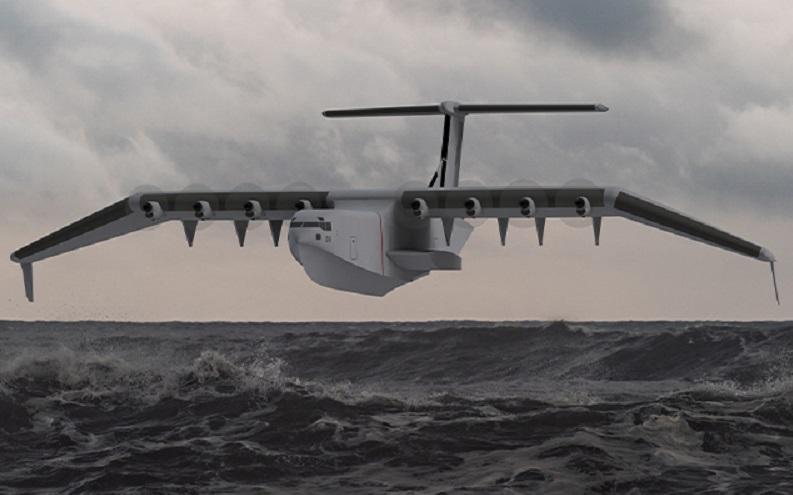Aurora Flight Sciences, a Boeing Company, has been selected for phase 1 of the Defense Advanced Research Projects Agency (DARPA) Liberty Lifter program, which aims to design, build, float, and fly an affordable X-plane that demonstrates revolutionary heavy-air-lift capability from the sea. This initial award funds six months of work to reach conceptual design review of a wing-in-ground-effect seaplane and includes an executable option to continue work through preliminary design review. Aurora’s point of departure concept is a high-wing monohull seaplane designed for affordable full-scale production and extended maritime operations, including at high sea states and in high-traffic areas. The concept will employ a robust and adaptive control system designed to meet the challenge of operations to and from the sea surface and at low altitude around waves and obstacles.
“We are excited to join the Aurora team to bring this new seaplane concept to fruition. Our areas of expertise complement each other and the collaboration between the two companies with proven records of solving DARPA-hard problems will be significant in delivering a viable design,” said Ray Sheldon, Gibbs & Cox Chief Executive Officer.
“Developing an X-plane requiring innovative solutions and complex controls is at the core of Aurora’s expertise. We look forward to solving this challenge and providing a new strategic capability to support tomorrow’s warfighter,” said Graham Drozeski, vice president of government programs at Aurora Flight Sciences.
In creating its half-boat, half-airplane concept, innovative aircraft developer Aurora Flight Sciences has partnered with leading marine engineering company Gibbs & Cox, a Leidos company. This combination brings together expertise in aeronautics and naval design to propose a modern-day Liberty ship that flies. Aurora’s point of departure design aims to meet the specifications set by DARPA, including a ferry range greater than 6,500 Nm, flying in ground effect in sea states up to 5 (up to 13 ft wave height), and a cargo capacity for two USMC Amphibious Combat Vehicles (ACV) or six twenty-foot container units. The Aurora and Gibbs & Cox design team will work from Aurora’s headquarters in Manassas, Virginia with early test structures fabricated in shipyards in the Pacific Northwest area. This integrated aerospace and maritime team will collaborate closely to design the heavy-lift seaplane concept with an eye toward flight testing in approximately five years.
Aurora Flight Sciences is an American aviation and aeronautics research subsidiary of Boeing which primarily specializes in the design and construction of special-purpose Unmanned aerial vehicles. Aurora has been established for 20+ years and their headquarters is at the Manassas Regional Airport in Manassas, Virginia. Aurora has four facilities that each have their own focus. Another manufacturing facility was opened in Starkville, Mississippi, in 2005 before being moved to the nearby Golden Triangle Regional Airport in Columbus, Mississippi, in 2007. A research and development center was opened in Cambridge, Massachusetts in 2005 where Aurora now develops a line of micro air vehicles. In 1989, the company was founded in Alexandria, Virginia, as a follow-on to the MIT Daedalus project. In 1995, Aurora joined the Global Hawk team and continues to build composite fuselage components and tail assemblies of the RQ-4 for Northrop Grumman and the USAF.















